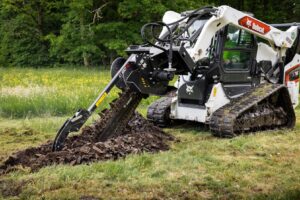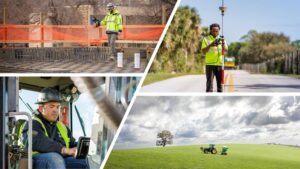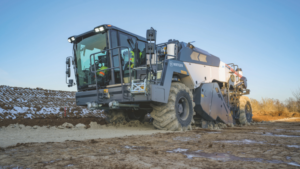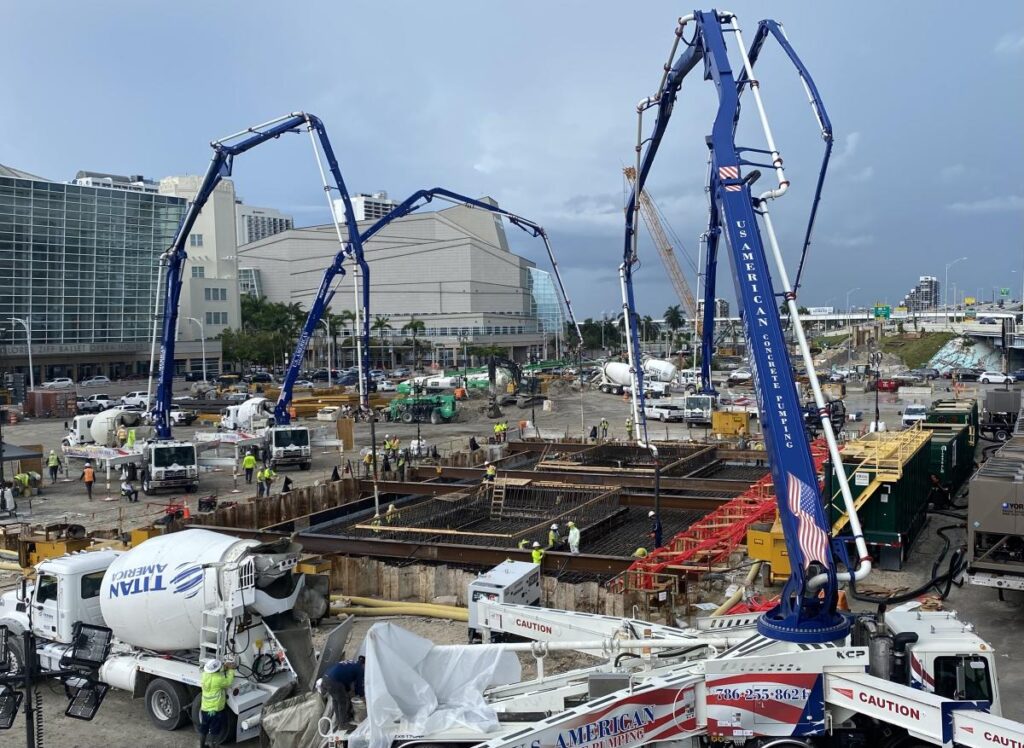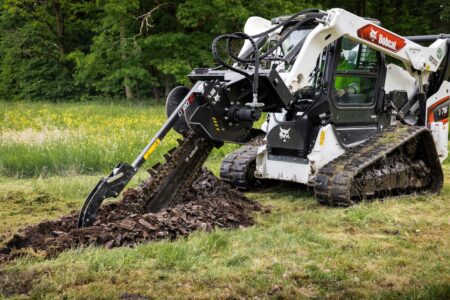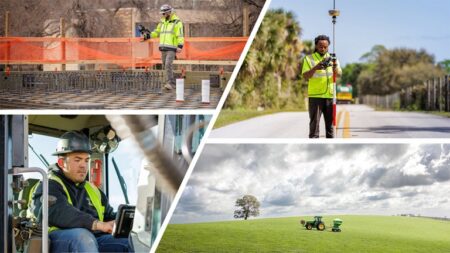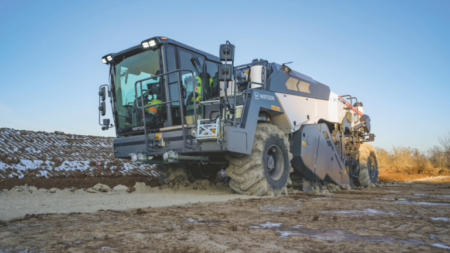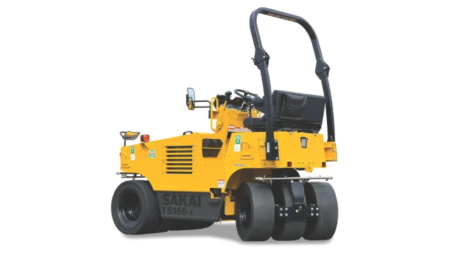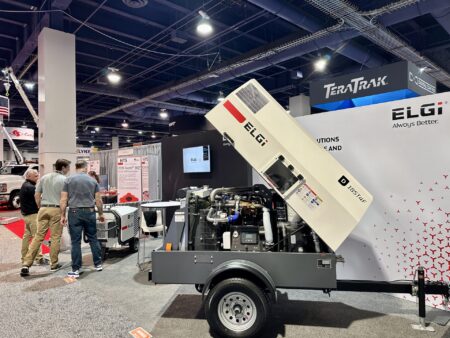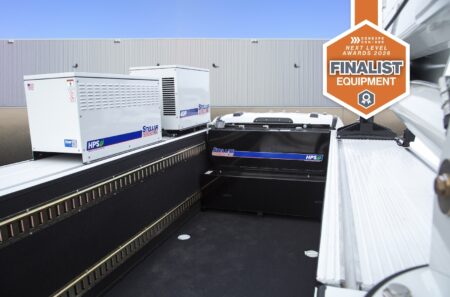Concrete quantities are approximately 255,000 cu. yds., along with 36 million lbs. of steel.
(FDOT photo)
Although work won’t be completed until late 2027, construction crews in downtown Miami continue making progress on the Signature Bridge that will connect SR 836/I-95/I-395. The $840 million design-build project is a partnership between the Florida Department of Transportation (FDOT) and the Miami-Dade Expressway Authority (MDX).
“Watching this project progress is extremely rewarding, because once completed, it will benefit our community on so many levels,” said Jacqueline Sequeira, FDOT construction project manager. “We will be increasing capacity, while enhancing safety and access for our residents, commuters and visitors.”
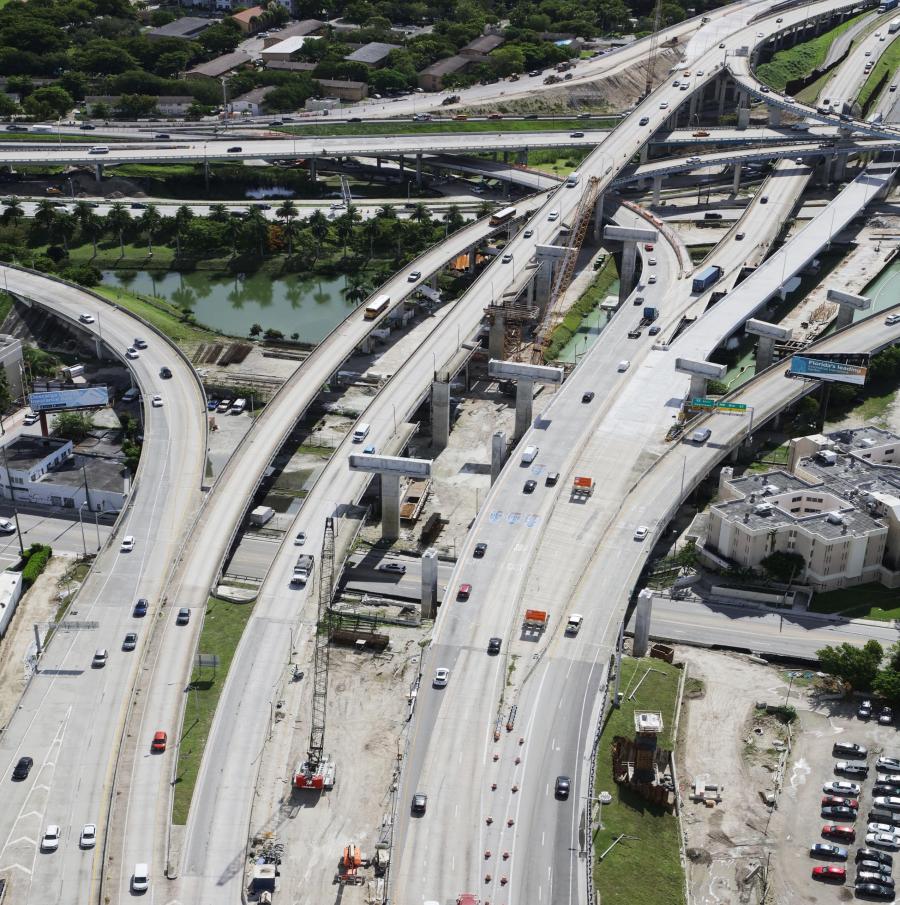
The vision for the project goes beyond mobility benefits, according to Sequeira.
“We are building an iconic Signature Bridge structure that will transform the Miami skyline for generations to come. We also have the unprecedented opportunity to convert previously unused space into more than 30 acres of vibrant community spaces in the downtown urban core for the use of our residents and tourists as well.”
Since the 2019 groundbreaking, workers have invested countless hours on the project, which was designed to improve quality of life in Miami-Dade County. It calls for what’s been described as innovative solutions and is the first major highway project to use auger cast pile for bridge foundations.
Key benefits include adding capacity to SR 836 from NW 17 Avenue to I-95 to enhance traffic flow and safety. In addition, the double-decked section of SR 836 will provide a direct connection to the MacArthur Causeway, which allows direct access from the airport to PortMiami and the city of Miami Beach. It separates downtown Miami destined traffic from vacationers heading to Miami Beach.
Adding an additional lane to the eastbound SR 836 ramp to northbound I-95 enhances the flow of traffic and safety. This work is already completed and open to traffic, as is an added auxiliary lane along northbound I-95 from north of NW 17 Street to NW 29 Street to accommodate the additional traffic from the eastbound SR 836 ramp to northbound I-95.
A new connector ramp from I-95 southbound to SR 836 westbound will improve traffic flow and reduce weaving movements. I-395 will provide three through lanes in each direction and provide separate connector ramps for traffic to and from I-95 and downtown Miami. Additionally, the existing I-395 on and off-ramps to I-95 will be moved west to North Miami Avenue, resulting in improved traffic flow by allowing additional options for traffic to travel north and south of I-395. Community spaces will be created under the I-395 bridges, including a continuous trail from NW 3 Avenue to Biscayne Boulevard.
Both day and night, seven days a week, construction takes place on the I-395/SR 836/I-95 project, as FDOT and its contractor, the Archer Western-deMoya Group Joint Venture, work on significant enhancements to the three major corridors within the project limits.
“The design-build joint venture contractor and the engineering design firms are a mix of local and national firms that in many cases have worked together in other high-profile projects and bring a wealth of experience and innovation to this complex project,” said Sequeira. “There also are many DBE firms on board.”
At this time, 60 percent of the work is finished.
Concrete pavement replacement on I-95 within the project limits from NW 8 Street to NW 29 Street has been substantially completed, and the 95 Express entrance and exit points have been relocated to their original location. Construction of a new bridge over NW 17 Street to widen the SR 836 and I-395 ramps to northbound I-95 is ongoing. Foundation construction also is ongoing at the interchange for the new westbound I-395 ramp to southbound I-95.
Construction on the new State Road (SR) 836 double-decked roadway continues from NW 17 Avenue to I-95. The second level roadway will provide drivers with a direct connection to the MacArthur Causeway that’s free of local entry and exit traffic. The existing SR 836 roadway (lower level) and bridges will serve as a collector-distributor system that allows drivers to enter and exit from the current local roads and I-95. This collector-distributor system will reduce the existing weaving movements, resulting in enhanced safety and better traffic operations on SR 836. The completion and opening of the second lane on the eastbound SR 836 ramp to northbound I-95 has improved traffic flow in the area.
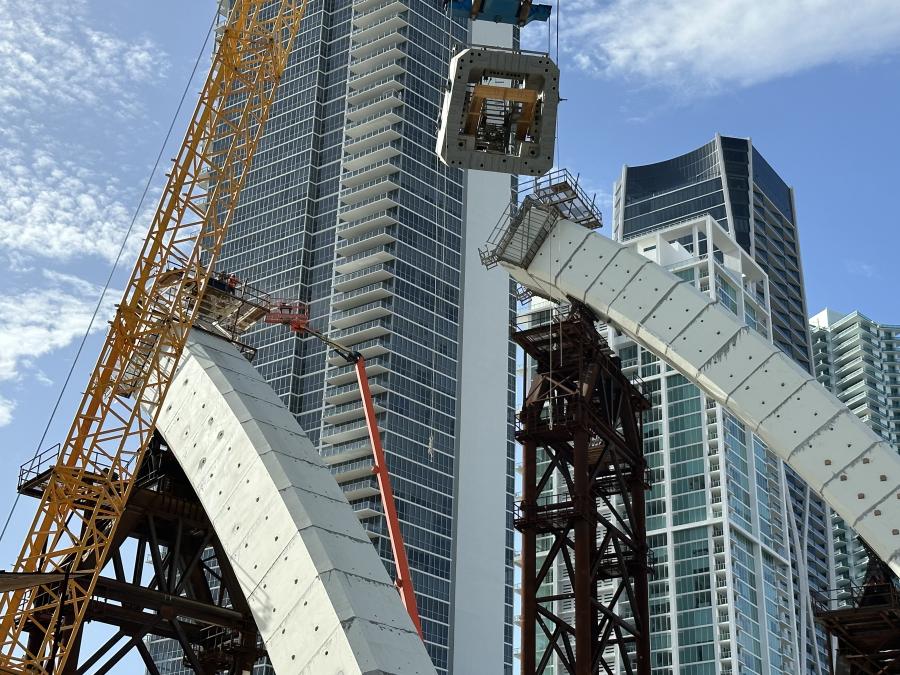
A traffic shift on eastbound SR 836 from NW 12 Avenue to I-95 was recently implemented, allowing the contractor to begin the construction of foundations for the new double-decked roadway. The contractor started installing the auger cast piles for the foundations near I-95 and is moving toward the west to NW 12 Avenue. Construction of the piers will follow. Pier and foundation construction is mostly completed from NW 12 Avenue to NW 17 Avenue, with crews finalizing the construction of two piers in the Richard Gerstein Justice Building parking area.
Crews also have completed the installation of drilled shafts for foundations on the west side of the main channel of the Miami River and are currently working on the drilled shafts on the east side. Construction of foundations and piers at the core of the SR 836/I-95/I-395 Interchange is also ongoing.
Total reconstruction of the I-395 corridor continues with ongoing construction of the new bridges from I-95 to just east of NE 1 Avenue, and construction of the Signature Bridge that will span more than 1,000 ft. from just west of NE 2 Avenue to the MacArthur Causeway. The contractor has erected 940 individual precast bridge segments for the eastbound and westbound bridges that will carry traffic to local roadways and connect with SR 836 and I-95. These new bridges, being constructed on either side of the existing I-395, are scheduled to be open to traffic late this year.
Once eastbound and westbound I-395 traffic is placed on the new bridges, demolition of the existing roadway can take place, and construction of foundations for the new mainline I-395 will begin. In all, it will take more than 1,940 individual precast bridge segments to complete the new I-395 bridges that will connect the Signature Bridge to SR 836 and I-95.
Signature Bridge work continues with the construction of four of the six Signature Bridge arches. A total of 34 precast arch segments have been erected to date at two of the arches. The contractor is installing reinforcing steel for the upcoming footer concrete pour at a third arch, and crews are preparing for concrete pedestal pours at the fourth arch.
Roadway crews continue work on upcoming traffic shifts on I-395 and the Biscayne Boulevard ramp to the eastbound MacArthur Causeway to begin foundation work on the remaining two arches. The work requires 345 precast arch segments to complete construction of the six arches. A total of 161 have been cast so far.
The huge center pier structure located between NE 2 Avenue and Biscayne Boulevard just north of I-395 continues to take shape, with the completion of multiple concrete pours. Crews are placing reinforcing steel and forms for additional concrete pours that will serve as connection points for all six arches. Erection of the arches from the center pier structure began in mid-September.
Sequeira said careful planning during the design phase and ongoing construction activities is crucial on an effort of this scale.
“This project includes work on three of the busiest and most critical corridors in south Florida, with an AADT of 450,000 at the interchange where all three corridors converge. It’s important to phase the work, so that work on one corridor does not impact any current or future work at one of the other corridors. Everyone on the team understands the importance of delivering the many benefits of this project as soon as possible, while minimizing impacts to the traveling public and adjacent communities.”
Concrete is the main material currently being used on site. Concrete quantities are approximately 255,000 cu. yds., along with 36 million lbs. of steel.
Crews are using a variety of cranes and gantries on the project.
“We have a massive MLC 650 crane on site to erect the individual precast arch segments for the Signature Bridge,” said Sequeira. “The crane was needed because of its [more than] 400-foot boom length, in order to reach the tallest arch at 330 feet in elevation.”
The most time-consuming part of the assignment involves planning the work for the Signature Bridge, because of the amount of rebars, post tensioning and the different embeds inside the concrete. As with most projects, there have also been a few snags.
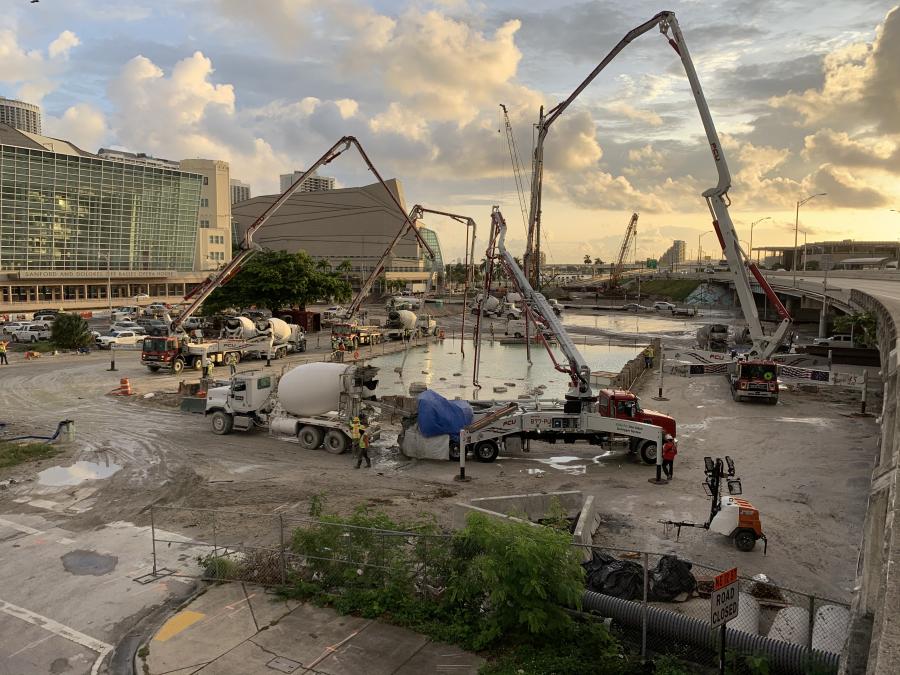
“Crews have encountered issues with unanticipated utility conflicts, including some requiring major relocation work. Supply chain issues, among other factors, including weather and holidays, have resulted in project delays extending the anticipated completion date to late 2027.
“The department works in partnership with contractors, suppliers and planners, which allows us to stay in tune with potential and trending concerns. Together, we can work through circumstances and coordinate innovative solutions that help us all reach the shared goal of successfully delivering projects to the traveling public.”
Not surprisingly, the ongoing work attracts plenty of attention.
“We often get comments from the public regarding the construction of the Signature Bridge and the SR 836 double-decked section,” Sequeira noted.
“We also get comments on the machinery, such as the 488-foot gantry being used at SR 836 to erect pier caps and beams, as well as the massive cranes at the Signature Bridge site.”
She added, “We conduct a lot of tours. Even construction professionals and engineers are amazed at the type of construction that’s happening along the project area.” CEG
Read the full article here

